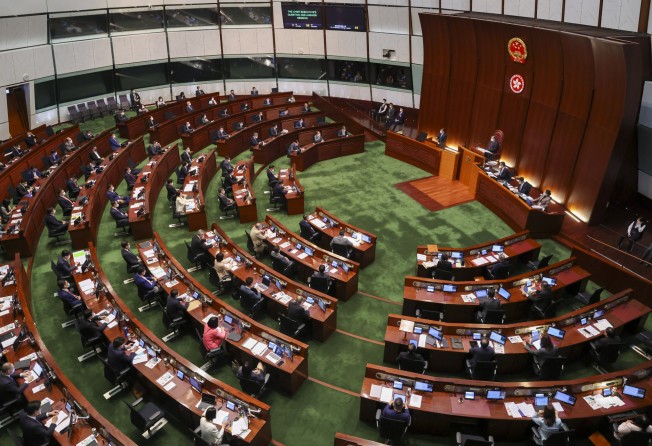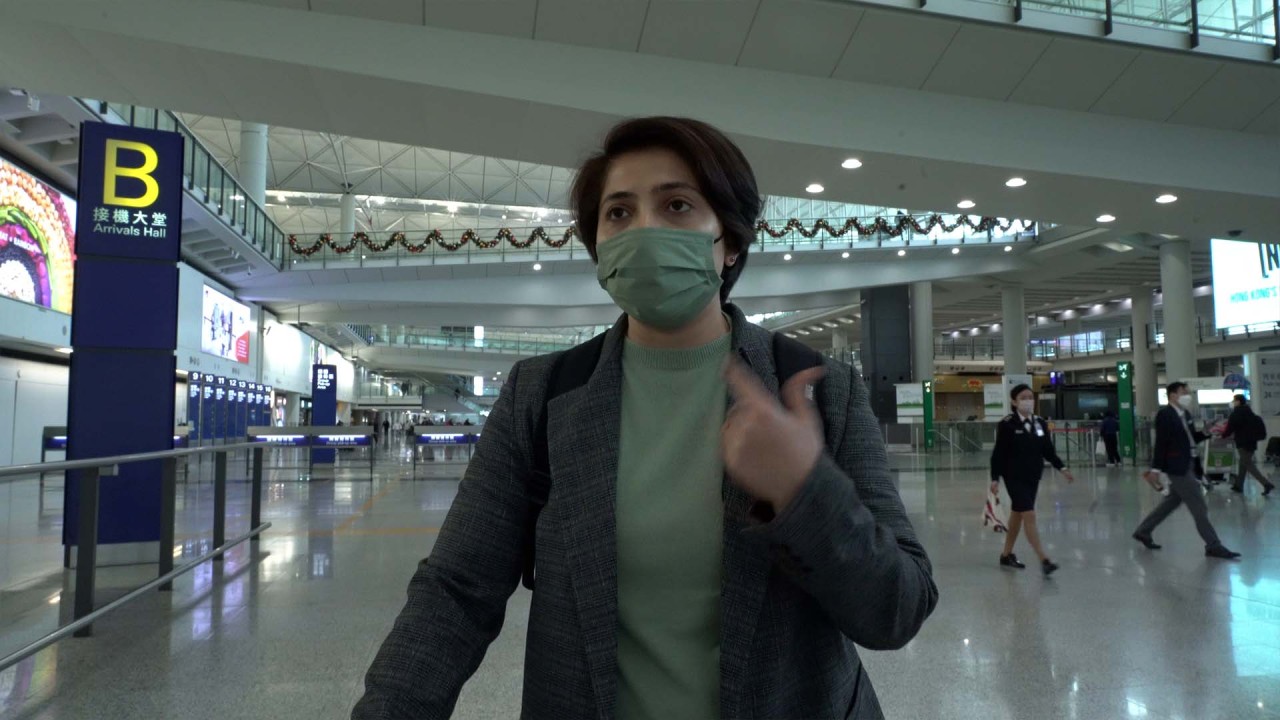
Legislative Council by-election candidates differ on Hong Kong’s main focus, some say technology as others emphasise culture
- Analyst raises concern that candidates’ failure to engage with public will make residents feel distant from lawmakers
- Some candidates say city must focus on technology, while others think culture, commerce and traditional Chinese medicine need attention

As six candidates fight to fill four seats in Hong Kong’s legislature, a debate has resurfaced on whether the city should put more focus on technological innovation, or other areas such as culture, commerce and traditional Chinese medicine.
Some candidates also argued that national education and poverty relief were Hong Kong’s most pressing needs, and the government should work more closely with the Legislative Council to find solutions.
The six aspirants are contesting in the Legco by-election to fill four vacancies, with only the 1,400 members of the Election Committee eligible to vote on Sunday morning to decide who gets to replace the four previous incumbents who quit their jobs earlier this year to take up senior official posts in Chief Executive John Lee Ka-chiu’s administration.
While the candidates were upbeat about the coming poll, an analyst argued that the contestants had done little to engage the public during their campaigning, and worried that Legco would gradually lose residents’ recognition.
The six candidates are tech company chief Shang Hailong, Professor William Wong Kam-fai, public affairs director Gary Wong Chi-him, Ken Lee Kwong-yu of the Federation of Trade Unions (FTU), Adrian Ho King-hong of the New People’s Party (NPP), and Chan Wing-kwong, a traditional Chinese medicine practitioner from the Democratic Alliance for the Betterment and Progress of Hong Kong (DAB).
William Wong, Shang and Lee all identified technology as their focus, but had different concerns as authorities push ahead with the city’s innovation drive.
Shang, managing director of SenseTime Hong Kong, the city’s first hi-tech unicorn, said he believed that technological innovation can help Hong Kong nurture a new generation, integrate with mainland China, and maintain global competitiveness.
“I came to Hong Kong 12 years ago … and now I have three homes – my family, Hong Kong, and my motherland,” Shang, 40, said in Cantonese during the event.

Professor Wong, 62, an associate dean of Chinese University’s engineering faculty, said he could be a source of expertise in university research in Legco, arguing the 90-member body lacked a lawmaker with such a background.
Lee, 44, chairs the FTU’s technology workers’ union after advancing from a tech worker to a company manager, and said he hoped to fight for labour rights as authorities develop the tech sector as a new industry.
But the other three candidates said other policy areas deserved more attention.
Ho, 45, a company director, said he believed Hong Kong needed more lawmakers who could speak up for local businesses as the city’s economy strove to recover following three years of pandemic woes.
Ho is also the nephew of former Macau leader Edmund Ho Hau-wah, and was best known for founding now-defunct Facebook group Save HK, which was a popular channel for the pro-establishment camp’s supporters to voice their backing for the government and police during the 2019 social unrest.
Gary Wong, 39, a board member of semi-official think tank the Chinese Association of Hong Kong and Macau Studies, said he was most concerned about the development of the culture sector in Hong Kong.
He also said he wished to work with another hopeful, Chan Wing-kwong, in promoting traditional Chinese medicine.
Chan, 59, said that while the approach to healing had been popular with residents, the city’s 8,000 registered practitioners were not represented in Legco.
Meanwhile, Hongkongers’ lack of national identity was identified by four candidates – William Wong, Gary Wong, Ho and Shang – as the city’s most deep-rooted problem.
“This is a problem left behind by the colonial government … and to tackle it, we must let young people know more about the country’s technological advancement in the past few years,” William Wong told a forum hosted by Beijing-friendly group the Hong Kong Coalition on Friday, two days ahead of the poll.
Gary Wong proposed making Chinese history a compulsory subject in the university entrance exams, adding the authorities should also educate students about the achievement of mainland and Hong Kong athletes.
But Lee and Chan said they were more concerned about poverty, high rent and other hardships faced by the people.
“I hope that our housing policy can be improved, so that lower-income families can have more opportunities to accumulate wealth and enhance the upwards social mobility of young people,” Chan, the traditional Chinese medicine practitioner, said.
Political scientist Ivan Choy Chi-keung, from Chinese University, said he noticed that the six candidates were not keen to engage the public during their campaigns since they officially entered the race at the end of November.
“In the past, election candidates were eager to meet the people and get media exposure, now the culture has completely changed,” he said.
“This [change] will make people feel distant from the lawmakers, and will affect Legco’s public recognition.”
The Post earlier reported that the six hopefuls were given Beijing’s blessing to run in the by-election to avoid “hostile infighting”, but sources said mainland officials had not drawn up a list of preferred candidates for voters.
The city’s opposition camp has been largely sidelined from politics following Beijing’s electoral overhaul last year to ensure only “patriots” hold power.
